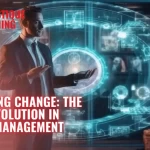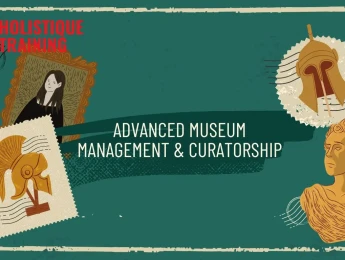The COVID-19 pandemic has significantly altered the landscape of project portfolio management, introducing unprecedented challenges and opportunities. The "Agile Project Portfolio Management Post-COVID" course equips professionals with the skills and knowledge to navigate this new environment effectively. This course provides an in-depth understanding of how the pandemic has impacted project management practices and explores future trends. Participants will learn to prioritise and select strategic projects that align with business objectives, optimise resource allocation in a changed landscape, and implement agile and hybrid methodologies for better adaptability and resilience. The curriculum also covers advanced risk management techniques for identifying and mitigating new risks in the post-pandemic era. Through a blend of theoretical insights and practical case studies, this course aims to transform how professionals manage project portfolios, ensuring success in the post-COVID world.
Upon completion of this course, participants will be able to:
- Adapt project management practices post-COVID.
- Prioritise and select strategic projects.
- Manage resources effectively in a changed landscape.
- Implement agile and hybrid methodologies.
This course is intended for:
- Project Managers
- Portfolio Managers
- Business Analysts
- Risk Management Professionals
This course uses a variety of adult learning styles to aid full understanding and comprehension:
- Interactive Lectures
- Case Study Discussions
- Group Activities
- Practical Workshops
Day 5 of each course is reserved for a Q&A session, which may occur off-site. For 10-day courses, this also applies to day 10
Section 1: Impact of COVID-19 on Project Management
- Analysing COVID-19’s Impact on Projects
- Shifts in Project Management Practices
- Future Trends in Project Management
Section 2: Strategic Project Selection
- Criteria for Project Prioritization
- Aligning Projects with Business Objectives
- Decision-Making Frameworks
Section 3: Resource Allocation Strategies
- Optimising Resource Use Post-COVID
- Balancing Resources Across Projects
- Tools for Effective Resource Management
Section 4: Risk Management Post-Pandemic
- Identifying and Assessing New Risks
- Developing Risk Mitigation Plans
- Continuous Risk Monitoring and Adjustment
Section 5: Agile and Hybrid Methodologies
- Fundamentals of Agile Project Management
- Hybrid Approaches to Project Management
- Implementing Agile in Traditional Environments
Section 6: Case Studies of Post-COVID Project Success
- Success Stories from Various Industries
- Lessons Learned from Post-COVID Projects
- Applying Best Practices to Your Projects
Upon successful completion of this training course, delegates will be awarded a Holistique Training Certificate of Completion. For those who attend and complete the online training course, a Holistique Training e-Certificate will be provided.
Holistique Training Certificates are accredited by the British Assessment Council (BAC) and The CPD Certification Service (CPD), and are certified under ISO 9001, ISO 21001, and ISO 29993 standards.
CPD credits for this course are granted by our Certificates and will be reflected on the Holistique Training Certificate of Completion. In accordance with the standards of The CPD Certification Service, one CPD credit is awarded per hour of course attendance. A maximum of 50 CPD credits can be claimed for any single course we currently offer.
- Course Code PO4 - 128
- Course Format Online, Classroom,
- Duration 5 days













